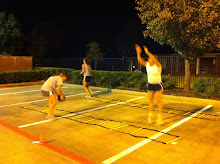
By now you probably know that our bodies are made up of between sixty-five and seventy-five percent water. Since water makes up the majority of our being, as well as our blood, tissues, brain, eyes, hair, skin, and joints, it is imperative that proper amounts of this liquid are consumed on a daily basis. Without adequate amounts of hydration, our bodies simply cannot function or operate properly.
Water is truly the life force of the world. This naturally occurring liquid does so much for every living being, and a good deal more than you may realize. Water keeps muscles flexible and pliable; it carries and helps to process nutritional components of food; provides cell structures with the necessary oxygen; it works to cushion joints and lubricate tendons and ligaments; and it helps us to eliminate waste from the body through urination and bowel movements.
Water is all natural, free of fat and calories, and easily absorbed by the body through the stomach and intestines. The body utilizes and expels water in several different ways. In addition to urination and bowel movements, water is lost through vomiting and sweat. People can become easily dehydrated after being ill, as well as while sweating. Many people are not aware of how much they are sweating (especially in hot or humid weather) and do not replenish their bodies with adequate amounts of water.
In order to prevent dehydration and to ensure proper hydration, you must make certain that you are consuming at least an equal amount of water compared to the amount that is being eliminated. Certain individuals, such as the elderly, people who are suffering from illnesses, those training, people who are on particular medications, and young children, are often at a higher risk for dehydration.
Individuals who live in very humid environments, very arid environments, and those who live in high altitude environments must also take extra care to ensure enough water is being consumed regularly. If you are traveling, and when you are working out, you should make sure you are continually stopping to sip on water so that hydration levels in your body remain in balance.
The actual recommended amount of water to be ingested per day varies a bit due to general health conditions, medication issues, age, and even gender. Your activity level, the time of year, and weather conditions also factor in to the amount of water you should be drinking daily.
As we age, our sense of thirst has a tendency to decrease. A good rule of thumb for adults is to drink about six to eight, eight ounce, glasses of water (or suitable fluids) each day. If this seems like too much, another way to determine a recommended dose for you is to take your weight and divide it in half. This number is equal to the total amount of fluids (in ounces) you should be consuming per day.
Please keep in mind that not all liquids hydrate well. Beverages that contain alcohol or caffeine can actually cause the body to dehydrate. Sodas contains a good deal of sugar (and often caffeine) and also do not hydrate properly. Take a bit of time and research healthy fluids that will factor well into your daily diet and dietary needs. Of course there is really no substitute for pure, clean, good old-fashioned plain water.




















No comments:
Post a Comment